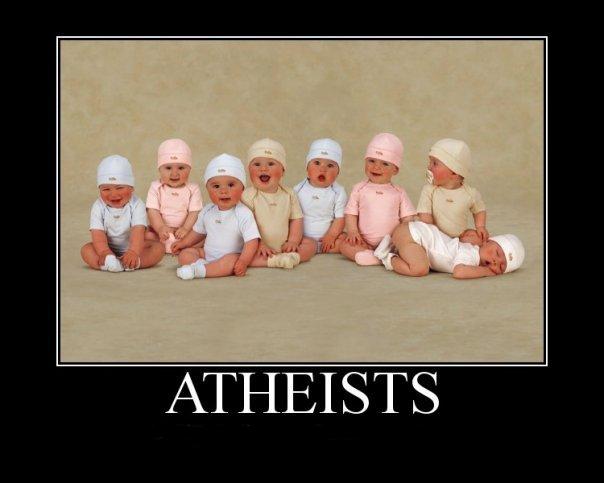Time to lay this rhinoceros to rest. If you accept that atheism describes the person who has no interest in, no knowledge about, or no particular belief about god, then atheism cannot be described as a "default position" on a scale of beliefs.
Default: Amongst a mess of options, the default is the option that will obtain if the chooser does nothing.
Thing about this: belief isn't an act. It's not something we do, and especially not something we choose to do. It's a description of the world, nothing more, nothing less.
Take the world.
The world is the case.
If we wish to examine truth or untruth, belief or doubt, certainty or uncertainty about the world, then we must hold the world distinct from those things we wish to examine. Hence, we will refer to it, and all its parts, as "the case."
The world is the case, and of the case things may be true or false, hence they may be believed or doubted, with degrees of certainty or uncertainty.
If I say, "I believe George went to the store," that lends it uncertainty. It says that because of insufficient knowledge there may some amount of doubt about George's activities, but still I have a degree of certainty about it. Similarly, to say, "I don't believe George went to the store," is to assert its uncertainty. Belief is the case described in such a way as to hold a degree of certainty.
If I say "George went to the store," then asserting the truth of that lends it a face that says there is no doubt, no uncertainty about George's journey. Truth is the case described as apart from me, apart from the certainty a consciousness might know.
That's because a consciousness is distinct from the world it knows.
The default is the option that will obtain if the chooser does nothing. The world is the case.
Both asserting a degree of certainty to the world and describing it as apart from me, apart from any degrees of certainty, are things we do. They are dong something, not nothing. Where the default is the option that will obtain if the chooser does nothing, asserting belief and truth--and their counterparts disbelief and falsehood--about what is the case are doing something.
In discussion, we do not fail to do something about the world.

